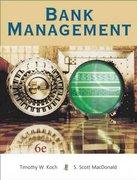Question
Burger King Dollar Double Cheeseburgers Recently, the National Franchise Association (NFA) filed a lawsuit against Burger King Corporation (BKC) over the pricing of products on
Burger King Dollar Double Cheeseburgers Recently, the National Franchise Association (NFA) filed a lawsuit against Burger King Corporation (BKC) over the pricing of products on its value menu, and specifically its $1 double cheeseburger promotion. The NFA is group that represents more than 80% of Burger King Franchise owners. Here are excerpts from the Associated Press1 report on the case: The National Franchise Association, a group that represents more than 80 percent of Burger King's U.S. franchise owners, said the $1 promotion forces restaurant owners to sell the quarter-pound burger with at least a 10-cent loss. While costs vary by location, the $1 double cheeseburger typically costs franchisees at least $1.10, said Dan Fitzpatrick, a Burger King franchisee from South Bend, Ind. who is a spokesman for the association. That includes about 55 cents for the cost of the meat, bun, cheese and toppings. The remainder typically covers expenses such as rent, royalties and worker wages. "New math, or old math, the math just doesn't work," Fitzpatrick said. Burger King justified the move by stating that the company needs to remain competitive in a tough economic environment: Restaurants, especially fast-food chains, have been slashing menu prices because of the poor economy. Executives hope the deeply discounted deals will bring in diners who are spending less when they eat out, or opting to stay home altogether. When the $1 double cheeseburger was announced this fall, analysts said it could increase restaurant visits by as much as 20 percent. But despite that boost, a Deutsche Bank analyst said as much as half of the gain recorded from increased traffic could be lost because customers were spending less when they ordered food. Burger King Franchisees pay a royalty to Burger King that is typically equal to 4.5% of revenues for the store. The lawsuit alleges that the value menu restriction illegally sets a maximum price for the Burger King franchises, and that Burger King is not acting in "good faith" by forcing franchises to sell a product below its cost. The case was filed in U.S. District Court in South Florida.
1. Based on the case, answer the following questions for the average franchise:
i) What is the Average Cost of the Cheeseburger?
ii) What is your estimate of the Average Fixed Cost of the Cheeseburger? How did you arrive at that estimate?
iii) What is your estimate of the Average Variable Cost of the Cheeseburger? How did you arrive at that estimate?
iv) What is your estimate of the Marginal Cost of the Cheeseburger? How did you arrive at that estimate?
2. Assuming that franchises operate in a competitive market, how will they be able to maximize profits? (Use previous knowledge or refer to pp. 234-237 in the text.) Based on your previous estimates, what price a franchise should set to maximize profits?
3.Do you support the idea that Burger King franchises are losing money by selling one more $1 double cheeseburger? If yes, why? If not, why?
4. What other effects do you expect that franchises will experience, when they reduce the price to #1?
5. What is the overall goal of a Burger King franchise? What is the overall goal of Burger King Corporate? Are incentives misaligned? Can this be resolved?
6. Use a search to find out how the case was resolved.
Step by Step Solution
There are 3 Steps involved in it
Step: 1

Get Instant Access to Expert-Tailored Solutions
See step-by-step solutions with expert insights and AI powered tools for academic success
Step: 2

Step: 3

Ace Your Homework with AI
Get the answers you need in no time with our AI-driven, step-by-step assistance
Get Started


